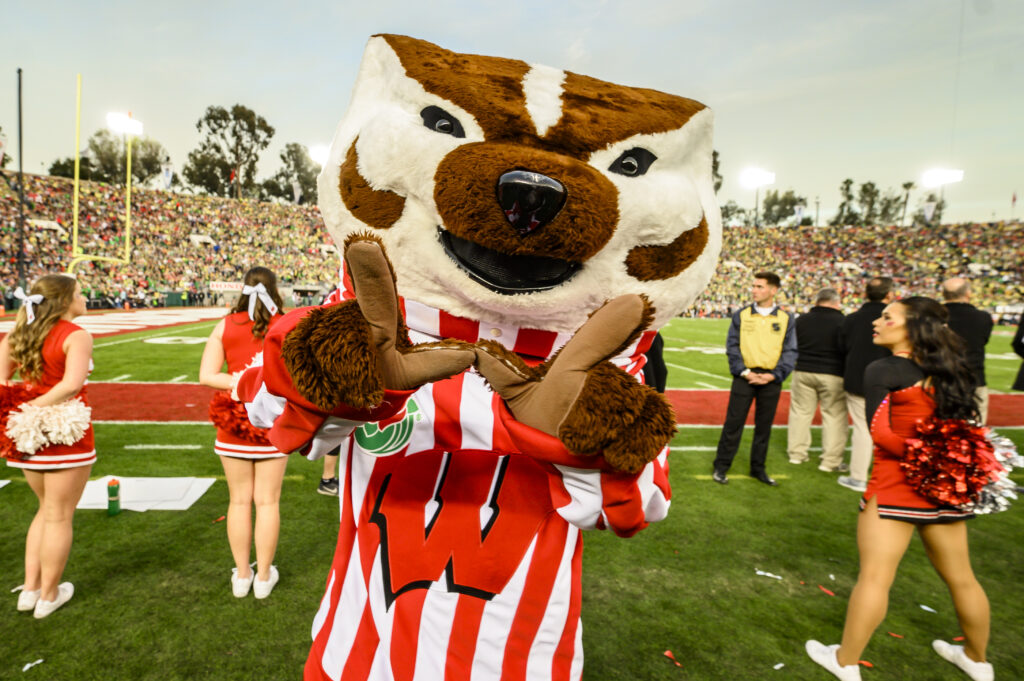Students struggle to make due with the Shell’s closure
Written by: Maddox Durst
MADISON, Wis. – One of the largest club organizations at the University of Wisconsin-Madison, which is known for its consistent success, is facing nowhere to house them.
The UW Track Club was founded in 1991, and has produced numerous track & field and cross country athletes for the university and beyond—emerging as a place where college students could continue to run and be a part of a team without having to commit too much time away from academics and other aspects of their college lives.
Worries began to accumulate, though, as the indoor recreation center nestled into Camp Randall, known widely as the Shell, was set to close after April 2023.
“I was very upset because even including the outdoor season, we probably spent by far the most time in there,” Brenden Dieter, a fourth-year member of the club, said about the Shell. “So, it was a really hard transition out of it.”
The Shell provided the lone resource for the track club during the winter months in Wisconsin, where performing half of the club’s events is necessary for them to train.
Sprinters, jumpers, and throwers were left with no facilities or resources by the time the 2023-24 school year rolled around, and winter began to set in throughout the middle of the academic year.
“It just kind of sucks, everyone was really disappointed because in the winter months, we’re training and we’re going to meets in March,” Vice President of sprints, Sam Culwell, said about the Shell’s closure. “We don’t have the proper facilities to train.”
To make up for that, the Track Club decided to take on the outdoors over this past winter, sprinkling a mix of a few indoor facilities whenever they could make do.
Jordan Ranum, a current medical student at the university, has been part of the club for five years and is experiencing this for the first time.
“It’s been rough, every Wisconsin winter is super unpredictable,” Ranum said. “We’ve been training outside in the cold, bundled up, trying not to die on the ice.”
For these athletes, the indoor option remains available, but not without having to plan around the numerous activities on and off campus.
The Track Club has practiced on the McClain Athletic Facility turf, which houses the Wisconsin football indoor practice field. They have also practiced at Verona Area High School, about a 20-minute drive from campus. They aim to work out as a unit at least four times weekly.
Both of those indoor options cost money and force the members of the Track Club to plan many of their evenings around practice. At McClain, the club is set to practice between 10:00 p.m. and midnight, which is not accessible for student-athletes with academics to take care of early in the morning.
On the other hand, Verona is a drive away, with many members not having a car, requiring car pools, or even requesting an Uber at some point throughout the year.
“We’re just trying to make the best with what we can,” Dieter said. “I won’t lie, my fitness has definitely taken a toll and my motivation has taken a toll with not having that facility because I relied on it so much.”
On Feb. 12, 2024, the UW-Madison Board of Regents announced a plan to create what was proposed in the reconstruction of the Shell. That includes a state-of-the-art football facility and numerous workout areas, surrounded by a three-lane track.
While the workout facility will be expanded, the track is thrown to the side, as the newest track being laid down in this building does not meet the regulations for any track & field athletes.
During that time, the Wisconsin men’s Track and Field team acquired two indoor Big Ten championships, while placing third this past season behind two of the biggest national brands in the sport, Oregon and USC.
Taylor Kesner, a women’s thrower, just won an individual national championship in the weight throw, all while the men’s cross country team has secured seven-straight Big Ten titles during this process.
There’s a brand for success, yet this group was forced to practice in Lodi and Whitewater at separate sites, each requiring daily bus trips.
“It’s interesting that we have such a successful track program, and have no indoor facilities, especially as a Midwest school with pretty cold winters,” Ranum said. “I feel like it puts UW at a disadvantage for their Division I athletics not to have an indoor facility.”
While the university provides those resources for its student-athletes, it leaves the UW Track Club on an island.
Training is necessary for the sport, and the escape from the daily stress of school that it creates is vital to multiple people on campus, including Ranum, Dieter, and Culwell.
Despite it not being in top-tier shape, the Shell was a place where bonds and memories were made, a facility that is going to continue to be challenging to replace in the next couple of years.
“Just talking about the Shell, it really makes me miss the sense of community we had there,” Ranum said. “When I went to the Shell, I felt like I knew everybody there, you would say ‘Hi’ to everybody. There were still a lot of people who went there, but it still felt like a tight-knit community.”

